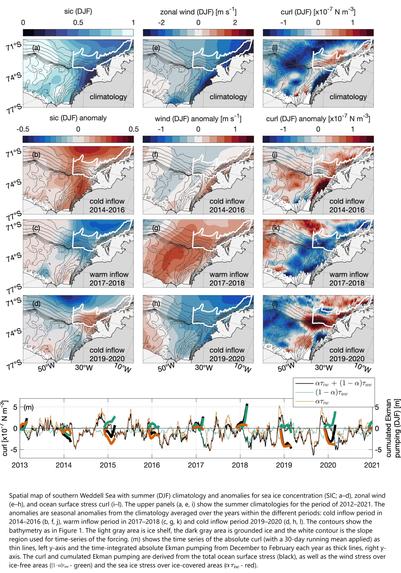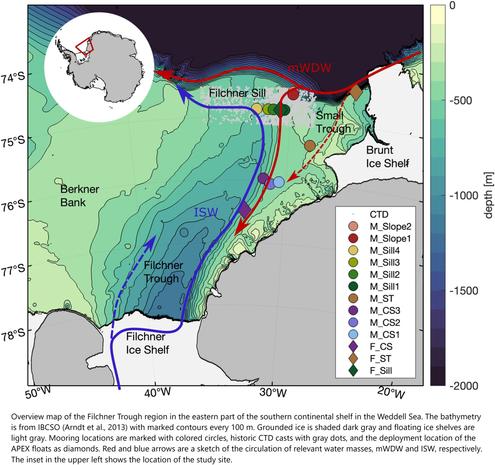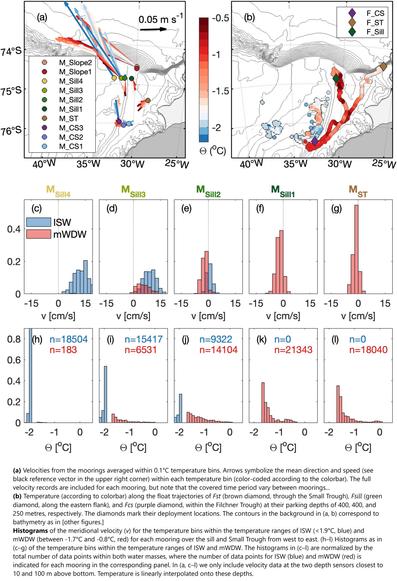--
https://phys.org/news/2025-01-seawater-encroaches-major-antarctic-ice.html <-- shared technical article
--
https://doi.org/10.1029/2023JC020700 <-- shared paper
--
#GIS #spatial #mapping #climatechange #Antarctic #Antarctica #icesheet #warmwater #oceancurrents #ocean #marine #iceshelves #WeddellSea #FilchnerRonneIceShelf #basal #melt #melting #rates #model #modeling #continentalshelf #spatiotemporal #observation #icecover #freshwater #global #sealevel #climatemodels #water #temperature #velocity #seawater #FilchnerTrough #spatialanalysis #oceandynamics
Warm seawater encroaches on major Antarctic ice shelf, raising sea level concerns
The vast Antarctic Ice Sheet holds more than half of Earth's freshwater. In several places around the continent, the ice extends over the ocean, where it forms large floating shelves. Observations suggest many of these ice shelves are thinning as they melt from below, with implications for ocean dynamics, global sea level, and Earth's climate.



